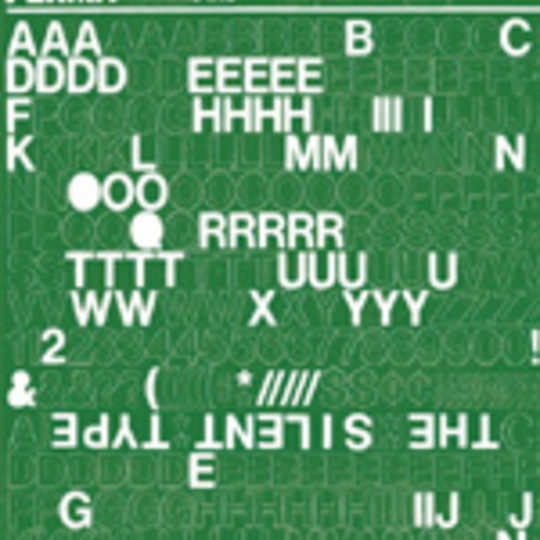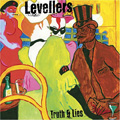The consumption and subsequent appreciation of music is almost entirely dependent on circumstance. That being the case, allow me a moment's divergence from the classical reviewing process.
At the time of writing it's late on July 21st, a fortnight since the London bombings. Chances are you don't need me to tell you what happened today; the personal effect is that I'm waiting for a 91 bus at the east end of The Strand instead of catching a Victoria Line train homewards (my regular Piccadilly service has been out of action since the first bombings). The sun's low already as I rummage blindly in my bag for a CD to pass the time, any CD really. I pick The Silent Type's debut purely by chance.
By the time the 91 reaches Holborn it's obvious the standard route north has been resumed - through Tavistock Square. Looking at the flowers laid in Russell Square and then at the calm of its northern neighbour, where only days ago there had been blinds of white sheeting preventing straying eyes capturing a split-second glimpse of a horror's echo, I feel suddenly reconnected with a reality lost through excessive television coverage. It hurts. As the bus pulls out from the tunnel of hotels and eateries, my eyes dart west - toward the sunset at the far end of Euston Road. Simultaneously, song five of nine on Of Writing / Of Violence, 'Some Curious And Beautiful Maps', culminates atop a wonderful summit of grandiose strings and weeping piano. I swear, I almost cry at the onset of the most intense calm I've felt for what feels like forever, sleep aside. There's a single line, too, that sticks in the memory until I arrive home under a sky of pink and gold: "This drive is a trap that will lead to a grave."
Of course, the song's timing is entirely coincidental, but such a convergence automatically has one - me - listening with absolute attention, the ears' sensitivity heightened by the sudden realisation that this just might be that magical rarity: a truly special release that was so close to being ignored in favour of records with a higher marketing budget behind them. Concentration brings instantaneous rewards: the seven-something minutes of 'Kneel' comprise the most wonderful dawn to a record heard this year, a sizable string section pitched into a beautifully orchestrated battle against deathly drums before the song wheezes into relaxation, twin male and female vocals steadying the song towards its truly gorgeous climax. That The Silent Type began life as the solo project of key protagonist (and Richmond, Virginia native) Nathan Altice is unbelievable - this song is so well-realised, so meticulously composed and so brilliantly executed that it's hard to imagine it ever existing in the mind of just one man.
The band now consists of six main performers, but the songs of Of Writing / Of Violence are blessed by the talents of six more, bringing harp, lap steel and banjo to the table. Maura Davies of Denali contributes welcome guest vocals. However, this album remains Altice's baby, as its his vocals that take precedence once the swoon-inducing instrumental passages have faded: it's as if Sigur Rós, Azure Ray and Bright Eyes pooled their collective talents in a magical log cabin at the furthest horizon of the Earth, stocked with only whiskey, teardrops and fairy dust. The initially obvious lyrical themes are absolutely familiar - the very first line of the record is "I'm no longer fit to kneel at your altar" - but listen that bit harder and you'll hear an Aladdin's Cave of free range poetic licenses running amok. There is a great lexical depth here, one to rival the epic splendour of the record's most stunning arrangements and the sweet serenity of its simple acoustic moments. That it bears a number of similarities to fellow Richmond residents Gregor Samsa (check out their 27:36 EP) – the dual vocals, the tremendous orchestral surges – isn't entirely unexpected: the pair released a split some time ago.
The album closes as it began, with another seven-minute song of sorrow laced with the sort of strings woven solely for the puncturing of hearts. An air of death lingers over 'Zeppelin', its mournfulness absolute until its whispered parting shots, from where those glorious violins and friends take control once more. Its duration is filled with talk of graves, of the need to leave no traces in one's wake. It's about disappearing and hoping to be forgotten. As a closer, it’s breathlessly tragic.
"With faces upturned, we look to be saved," states Altice, but from what? Inevitability will sucker even those that flee from it with the swiftest feet; fate will persevere regardless of the few's battle to double bluff it. Perhaps fate also ensured that I'd be playing this when my mindset was at its most malleable? Or maybe I'm merely in the company of a great record that could have been summarised with a simple line: buy this and be happy.
Of course, the above praise just might be born of circumstantial coincidence over circumspective critique. Truth be told, I don't know; all I can tell you for certain is that the record's still playing as the big hand rolls past twelve and into the 22nd.
-
9Mike Diver's Score





















